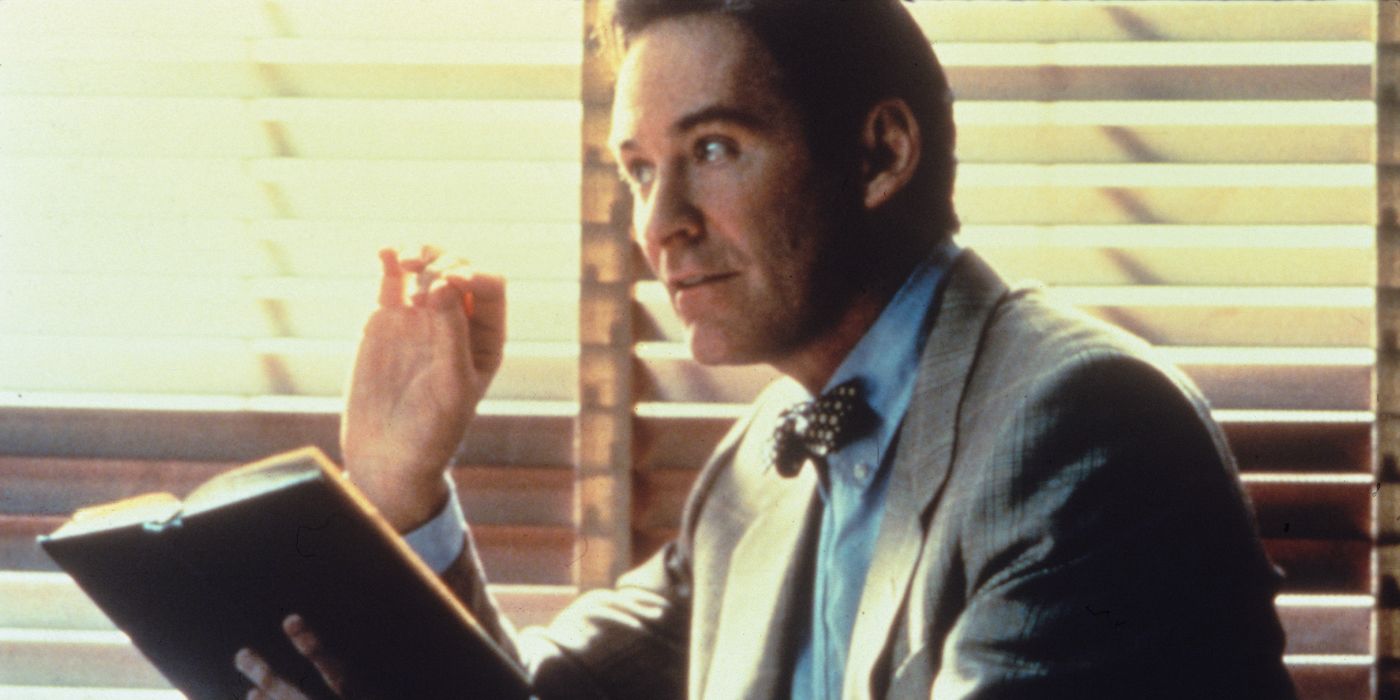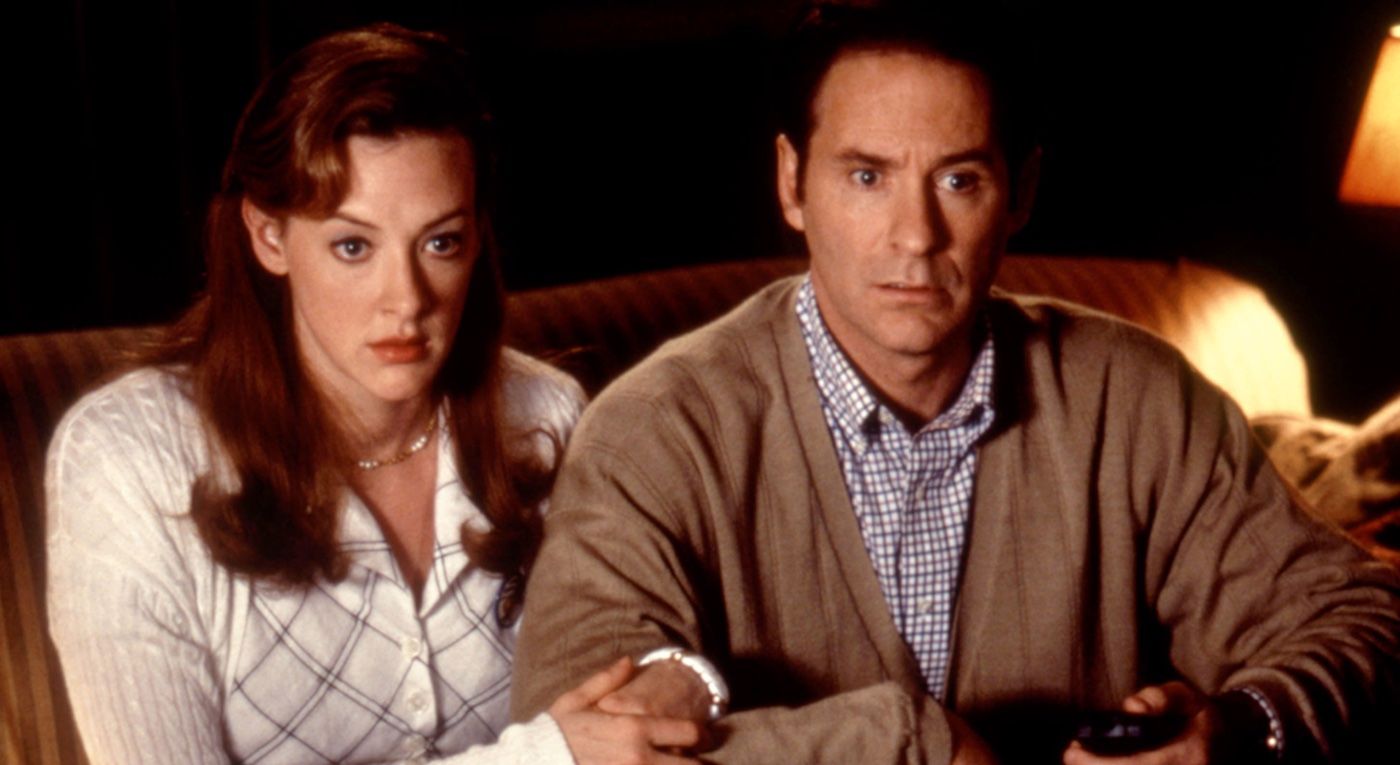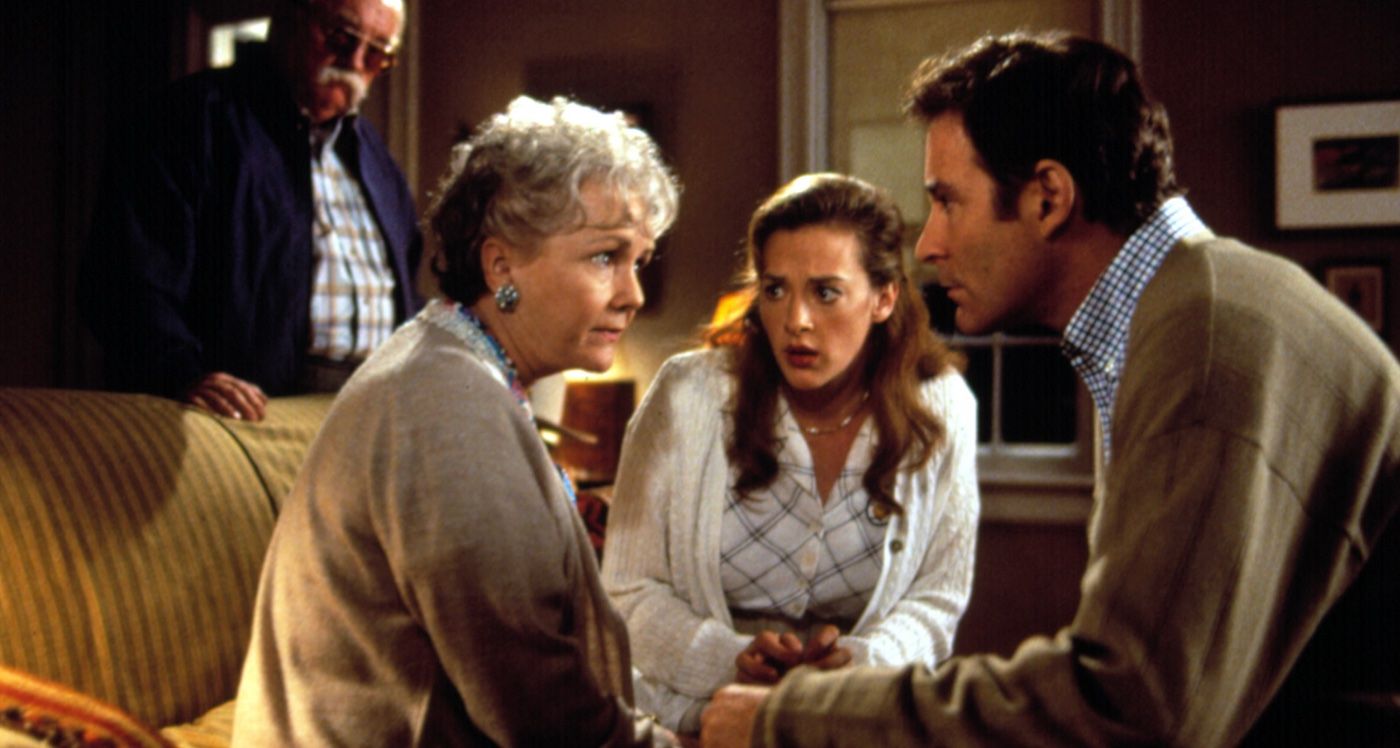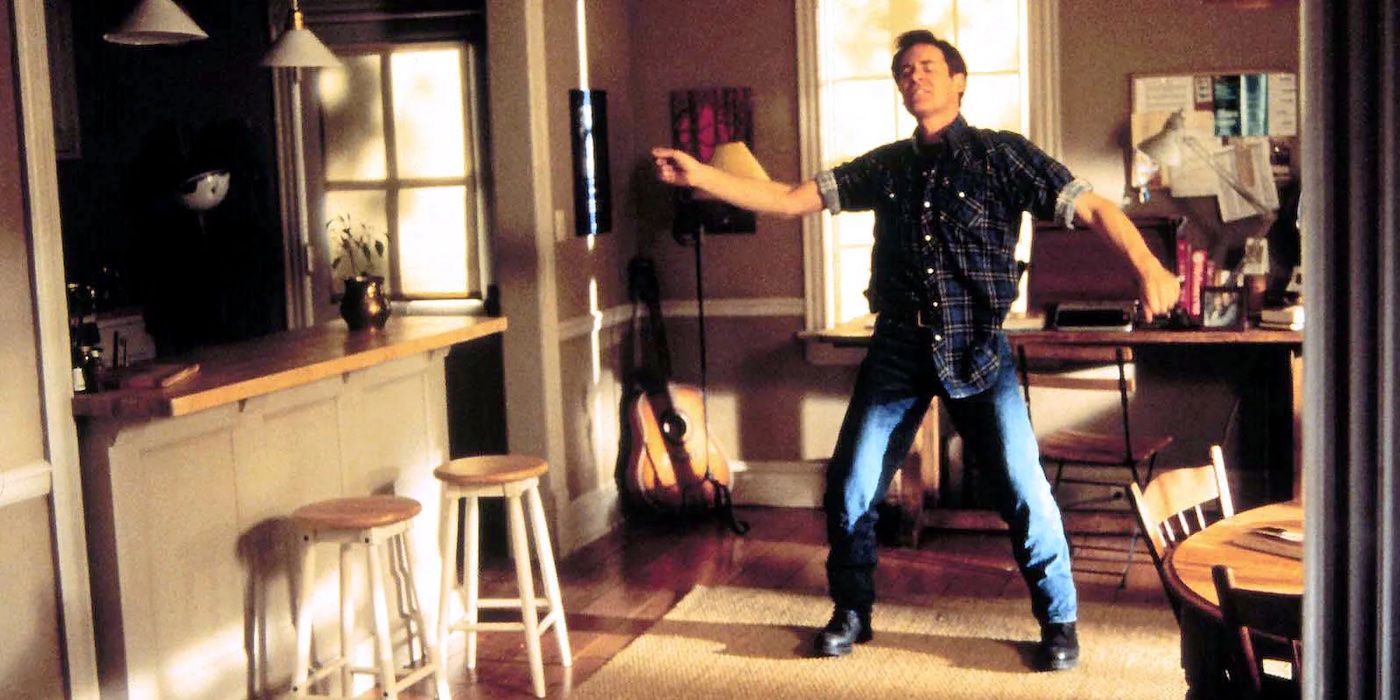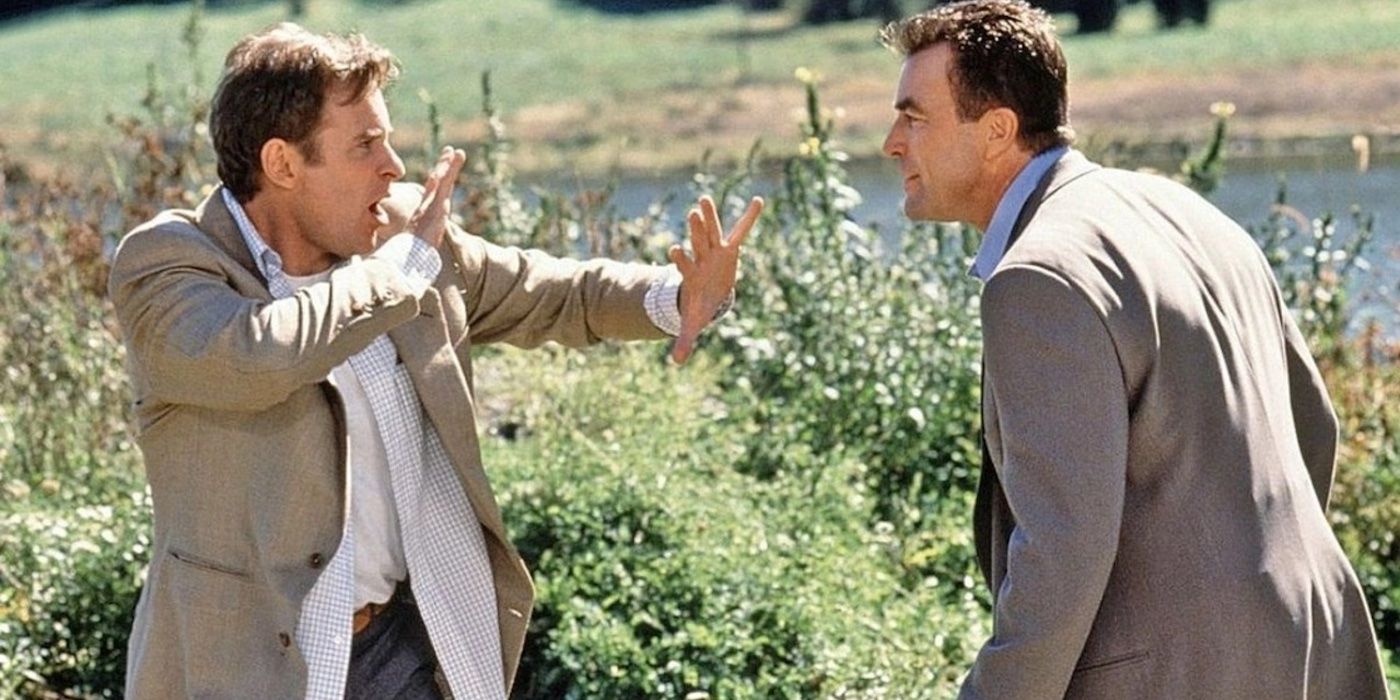“Since when are you so Jewish anyway? You’re about as Jewish as Melanie Griffith in A Stranger Among Us,” spews Will (Eric McCormack) to Grace (Debra Messing) in a Season 4 episode of Will & Grace. “Well, you’re about as gay as Tom Selleck in In & Out!” she retorts. The implication here, of course, is that Will and Grace are no more gay or Jewish than actors playing roles with those identifiers, who are not those things in real life. It’s a complaint still lodged against mainstream queer films today—why does Hollywood still insist on considering straight actors for gay roles when there is an endless list of eligible queer actors? Box office success, no doubt, but the mentality that an increasing number of queer moviegoers tend to hold where they won’t support films starring straight actors as gay characters can also cloud our vision of enjoying gay films that hold up despite their flaws. In & Out being one of them.
Inspired by Tom Hanks' Oscar Speech
Released 25 years ago this week, In & Out stars Kevin Kline as Howard Bracken, a high school English teacher in Greenleaf, Indiana who is outed as gay by a former student, Cameron Drake (Matt Dillon), during his acceptance speech for the Academy Award for Best Actor. The film’s comedic premise was based on Tom Hanks’ real-life Oscars acceptance speech in 1994, where he won for playing a gay man with AIDS in Philadelphia. Referring in his speech to a former teacher and classmate as “two of the finest gay Americans, two wonderful men that I had the good fortune to be associated with,” In & Out imagines a fictionalized account from the perspective of one of those men, who didn’t believe himself to be gay until that very moment.
A Different Time for the Gay Community
I watched In & Out for the first time about a month ago and would be lying if I said I didn’t watch with bated breath for all the ways this gay comedy film that was so obviously made for straight audiences didn't age well. After all, this was pre-Will & Grace and was released the year that Ellen received a parental advisory notice just because she started dating women. This was pre-Queer as Folk, pre-Glee, pre-Schitt’s Creek. The fight for gay rights was in an entirely different place, especially in Hollywood, where the thought of casting gay actors in gay roles was surely on no one’s radar. I was half-expecting 92 minutes of misfired jokes that might’ve read as progressive in 1997 but homophobic in 2022. Instead, what I found was a genuinely charming mid-budget comedy film that made me laugh for all the right reasons.
Whether it’s the fact that the film was perhaps commenting however subtly on Hollywood’s tendency to shower straight actors with accolades for gay roles (Cameron scores his Oscar for playing a gay soldier in what looks like a precursor to Brokeback Mountain) or Joan Cusack’s brilliant performance as Howard’s fiancée who promptly has a breakdown when he announces he’s gay at the altar (“Fuck Barbra Streisand!”), In & Out doesn’t so much make a mockery of gay people but allows them to be their true, unabashed selves, even if those selves happen to line up with “tired” gay stereotypes.
Gay Stereotypes Are Only Made Tired By Straight People
Although it does incorporate homophobia when Howard’s students begin pointing out his effeminate mannerisms or when he ends up being fired over his newfound sexuality, the film reminds us that those gay stereotypes only became “tired” once straight people started using them against us. Heteronormative media and culture have spent years telling people that it's okay to like Barbra Streisand and have effeminate mannerisms and still be straight. But it has never told us that gay people can have and be those same things and still be worthwhile.
In & Out flips that narrative by telling the audience that gays are, for lack of a better term, here and queer and they better get used to it. This culminates in the film’s best scene when Howard brings home a set of motivational self-help tapes on how to be more masculine. The tape’s voice is purposely discriminatory in trying to teach him how to embrace toxic masculinity, but when it comes down to trying to teach him how to dance like a man, Howard just can’t help himself. Set to the tune of Diana Ross’ cover of “I Will Survive,” he starts dancing the way he always has, as his authentic true self. It’s a freeing reminder that life is absolutely too short to be anything else other than exactly who we are.
Society Is the Punchline, Not Queerness
It would have been so easy to have Howard’s queerness be the punchline of every joke like most gay representation up until this point, but instead, the film makes society the punchline for not considering that there is more than one way to be a man. Whether it’s the soundtrack’s repeated use of The Village People’s “Macho Man” or Tom Selleck’s legitimately compelling portrayal of a gay tabloid reporter following Howard and his story, In & Out subverts it all. Indeed, in an era of “Don’t Say Gay” where rights for queer and trans people are still under attack in the United States, the film’s penultimate scene—where the high school’s graduating class, as well as Cameron and several prominent community members, stand up for Howard being gay in the face of his firing—reads as at least a decade ahead of its time.
Perhaps it helps that In & Out was written by a gay man (Paul Rudnick), but the film appears to have aged regardless in a way that most films of its kind aspire to - sociopolitical commentary that might have seemed daring at the time that now reads as ahead of the game. Of course, it’s very easy to watch In & Out through a modern lens and recognize all the things that are in fact a product of its time, such as mild fatphobia and eating disorder fodder. But the ways in which the film stands the test of time signal to me that there was once a market for such progressive mid-budget comedy that could afford to make a long-awaited comeback.

